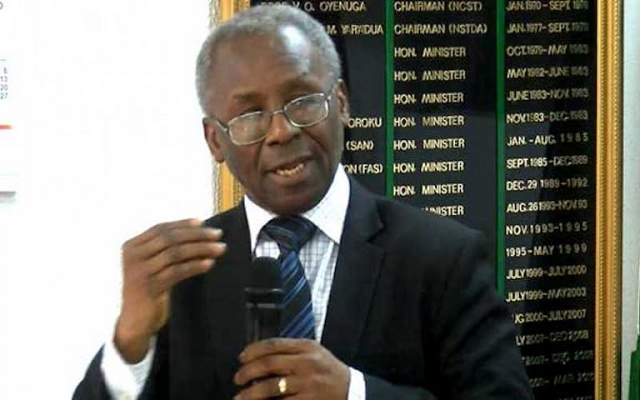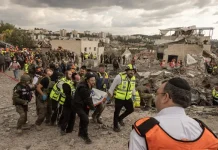With the number of COVID-19 cases rising by 30 in a single day yesterday, bringing the tally to 373, panelists on an Arise TV programme, including Professor of Virology and former Vice-Chancellor, Redeemer’s University, Prof. Tomori Oyewole, have warned that the nation may be in for a prolonged shutdown.
The panelists, who spoke during the Arise News Channel Global Briefing on COVID-19, a programme on Arise Television, the broadcast arm of THISDAY Newspapers, described Nigeria’s testing rate for the pandemic as poor, warning that with the slow pace, the country’s lockdown might last for several months.
President Muhammadu Buhari had on Monday signed the COVID-19 Regulations No 2, extending the lockdown in the Federal Capital Territory (FCT), Lagos and Ogun states which started on March 30, 2020, by another 14 days.
But the World Health Organisation (WHO) has said countries should consider protecting human health first while making decisions on whether to lift restrictions or impose them.
Lagos State Government has also discharged eight more COVID-19 patients from its Infectious Disease Hospital in Yaba, and listed one more patient as dead.
The state government has also identified 119 people with COVID-19 symptoms during its house-to-house search that has so far covered a total of 118,000 households in communities.
The pandemic has also claimed the life of the Chairman of the defunct Sosoliso Airline, Mr. Victor Ikwuemesi, who died yesterday in London.
The Arise TV News panelists urged the Nigeria Centre for Disease Control (NCDC) to reduce its criteria for testing if it does not want the country’s COVID-19 infection rate to snowball in the coming weeks.
Sharing his thoughts, Oyewole said the case definition protocol of the federal government made it difficult for NCDC to test a high number of Nigerians who have been clamouring to have their samples tested for the disease.
He said: “NCDC said you must have come down with one or more symptoms of the disease before you can be tested. The problem with this case definition is that there are a lot of persons who will not come down with the symptoms even though they are infected.
“These categories of persons have the capacity to infect people around them. So, if the government ignores such persons, be rest assured that our infection rate will increase and the lockdown will continue for several months.
“The incubation period for the disease is one to 14 days. It can fully incubate in any of those days. So, there is no point waiting for the 14th day or when symptoms are obvious before testing can be done. This has limited a lot of Nigerians from being tested, and this is dangerous for our fight against the disease.”
He advised the federal government to review the criteria for testing so that anyone who has had contact with a positive person or who came into the country from a high-risk nation should be tested.
A security analyst, Mr. Seyi Adetayo, said one of the challenges federal and state governments must be ready to tackle during the lockdown was insecurity, adding that most of the criminals are people who depend on the daily income to feed.
On why Nigerians are not totally observing the sit-at-home order by the federal government, he said the mistake was made from the onset, noting that religious leaders would have been carried along from the first day.
He said: “Nigerians have no much faith in the government. They respect their imams and pastors more than the government. “Government should have liaised with these religious leaders, who in turn would have talked to their subjects before the government declared the lockdown.”
Another security analyst, Mr. Kabiru Adamu, said the Inspector General of Police should identify the hotspots and beef up security around such areas, adding that in the coming days there would be more cases of insecurity unless the security agencies step up their game.
He said: “I am not in support of bringing the military to the streets to tackle the rising insecurity, except the police, say they do not have the capacity to tackle the challenges.
“If government must bring in the military, there must be templates and standard operating procedure so they do not infringe on the rights of the people.”
Source: THISDAY













